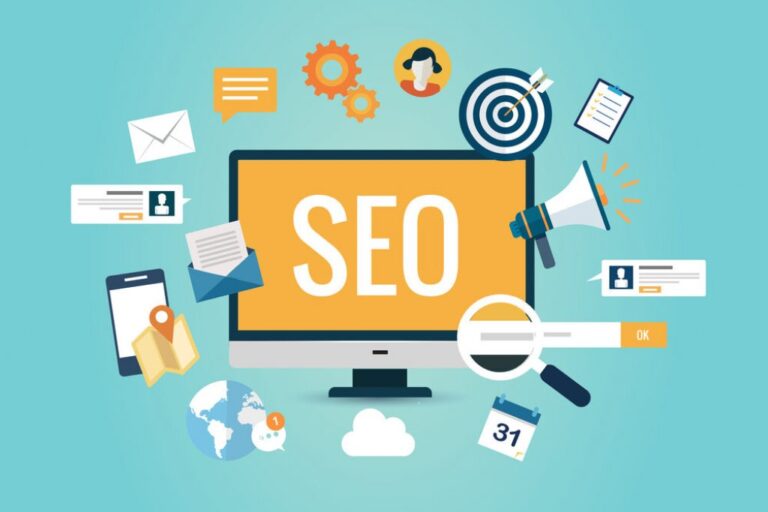Understanding SEO and Its Basics
Diving into the world of SEO can feel overwhelming, especially when whispers of coding knowledge start echoing in every guide. But here’s the big secret—you absolutely can master SEO without touching a single line of code. Whether you’re a blogger, content creator, or digital marketer, understanding the essence of SEO without being a tech wizard is 100% doable.
What Is SEO?
SEO (Search Engine Optimization) is the magic wand that makes your website visible to search engines like Google. Think of SEO as a roadmap that guides search engines to the best, most relevant content for user queries. In digital marketing, SEO is the powerhouse that drives organic traffic and increases brand visibility.
SEO is built on three core principles:
- On-Page SEO: Optimizing the content on your website, including keywords, internal links, and meta descriptions.
- Off-Page SEO: Building backlinks and fostering brand authority.
- Technical SEO: Ensuring your website is technically sound, with fast loading times and mobile-friendly design.
Does SEO Require Coding?
Let’s bust a common myth—SEO does not require coding. While technical SEO might brush shoulders with coding now and then, most SEO activities involve strategic thinking and content optimization. Distinguishing between coding and technical SEO can make all the difference in how approachable SEO feels.
Breaking Down the Coding Myths
While technical SEO deals with elements like sitemaps, robots.txt files, and schema markup, understanding these doesn’t mean you need to become the next Python prodigy. Simple tweaks like improving alt text or structuring headers are non-coding tasks that yield big results.
How to Learn SEO Without Coding
Focus on SEO Fundamentals
Start with the heart of SEO—keyword research and content optimization. These two pillars set the foundation for understanding user intent and aligning content to search algorithms.
- Keyword Research: Find what your audience is searching for using tools like Ahrefs or Ubersuggest. Hunt for those long-tail keywords and match them naturally within your content.
- Content Optimization: Ensure your articles are well-structured, engaging, and informative. Sprinkle in those LSI keywords to signal relevance to search engines.
Master On-Page SEO Techniques
On-page SEO is your playground, and you don’t need to bring any coding toys to the sandbox.
- Content Structure: Make your content scannable. Use headers (H2s and H3s) and bullet points to keep readers engaged.
- Meta Tags and Alt Text: Write compelling meta descriptions and ensure your images have descriptive alt text. It’s like adding subtitles to a movie—everyone loves the extra clarity!
Leverage SEO Tools for Non-Coders
The good news? The internet is your SEO toolbox. There’s an arsenal of SEO tools that do the heavy lifting for non-coders.
- SEO Performance Analyzers: Tools like SEMrush and Moz help you track keyword rankings and identify performance issues.
- Keyword Tracking and Site Audits: Google Search Console is your free bestie for site audits and finding areas that need improvement. For those moments when a tool points out a tech fix, don’t panic—we’ll cover collaboration with developers in a bit.
Advantages of Learning SEO Without Coding
Accessibility for Non-Technical Learners
Here’s the beauty of SEO—it’s an open invitation for anyone passionate about content and analytics. No tech degree needed!
- Lower Barrier to Entry: You can jump into SEO today without investing years in coding courses.
- Opportunities Abound: Content creators, marketers, and bloggers can excel in SEO, leveraging their existing skills without learning JavaScript.
SEO Success Stories Without Coding
Plenty of top-tier SEO experts built their careers without ever writing code. Just search for stories of industry leaders who rose through smart strategies and content excellence—not coding. Their paths prove that non-coders can dominate the SEO game.
When Coding Can Be Helpful (But Not Necessary)
Technical SEO Elements
While coding isn’t mandatory, knowing basic HTML or CSS can help you understand some aspects of technical SEO. But fear not—most minor technical fixes don’t need deep coding knowledge.
- Common Fixes: Adding a sitemap, updating robots.txt, or using plugins like Yoast SEO to handle backend issues.
- Simple Edits: Adding schema markup might sound intimidating, but tools like Google’s Structured Data Markup Helper make it a breeze.
Outsourcing and Collaboration Tips
You don’t need to tackle every tech fix alone. Collaborating with developers or IT teams ensures those complicated tasks get done without derailing your workflow.
- Effective Communication: Use clear, jargon-free language when communicating with tech teams. Instead of saying, “I need the JS rendered for faster crawling,” try, “Can you ensure this page loads quickly for search engines?”
SEO Success Without Coding
Mastering SEO without coding is not only possible but also rewarding. Focus on what matters—high-quality content, smart keyword use, and effective on-page practices.
Actionable Steps to Start Learning SEO
- Enroll in beginner courses like Moz’s “SEO Essentials” or HubSpot’s SEO training.
- Stay updated with blogs and resources like Search Engine Journal and Google’s Search Central Blog.
- Practice using tools like SEMrush and AnswerThePublic for keyword inspiration.
Ready to elevate your online presence? Dive into ML Digital Marketing’s expert guides and resources to unlock the power of SEO—no coding required! Whether you’re just starting or looking to refine your strategy, we’ve got everything you need to succeed. Start mastering SEO today! Contact us now!
FAQs
- Can I become proficient in SEO without any coding background?
Yes, many SEO professionals succeed without coding knowledge. Mastering content optimization, keyword research, and on-page SEO can lead to effective SEO results without writing code.
- What SEO tools are best for non-coders?
Tools like SEMrush, Moz, and Google Search Console are excellent for non-coders. They provide valuable insights and automate complex processes to make SEO more accessible.
- How long does it take to learn SEO basics without coding?
With consistent practice and using online resources or courses, you can learn the fundamentals of SEO in a few weeks to a few months.
- Is technical SEO impossible without coding knowledge?
No, many aspects of technical SEO can be managed using SEO plugins or simple website tools. For more complex tasks, collaborating with a developer can help bridge the gap.
- What career opportunities exist in SEO for non-coders?
Non-coders can pursue roles like content strategist, SEO specialist, or digital marketer, focusing on keyword research, on-page optimization, and SEO analysis.







